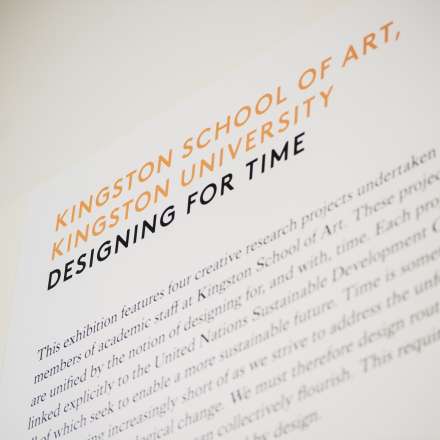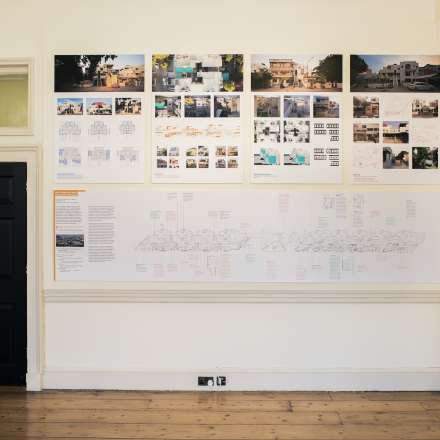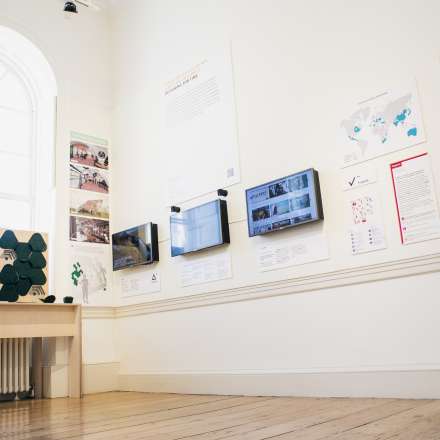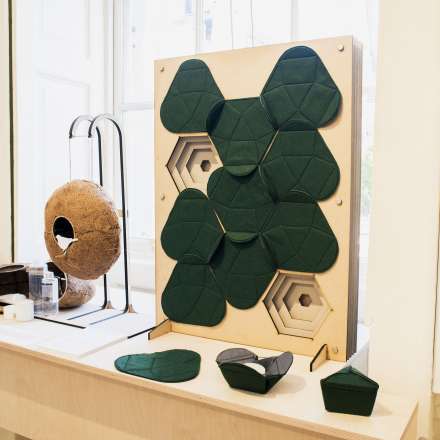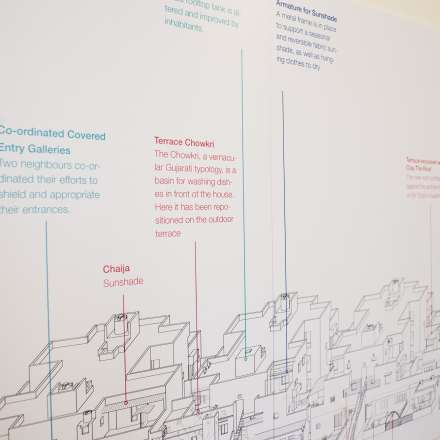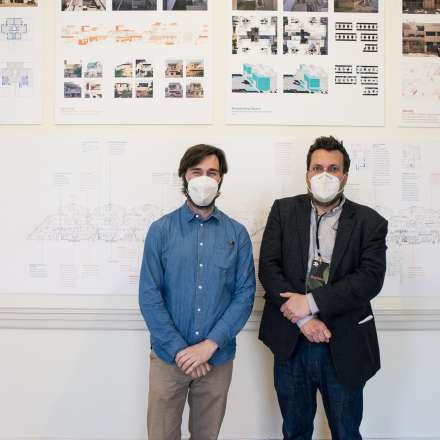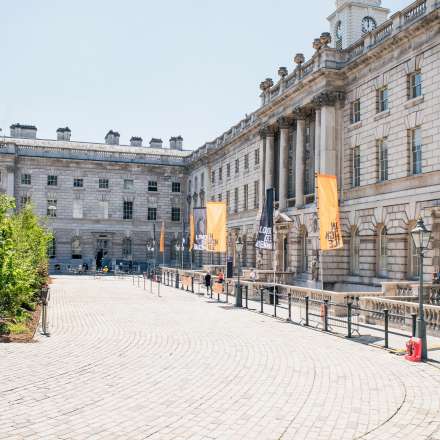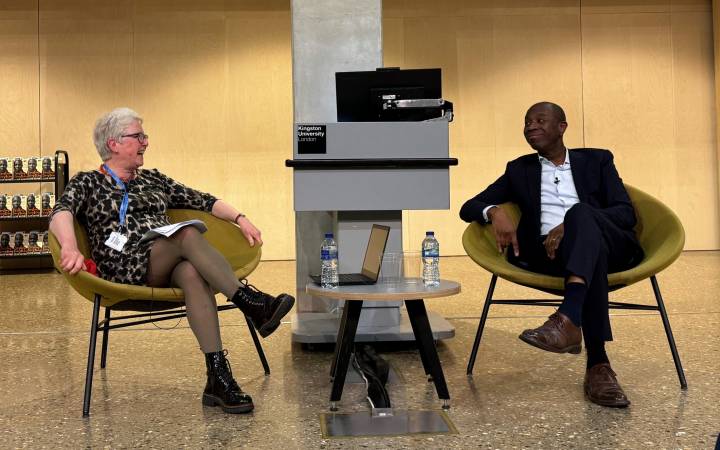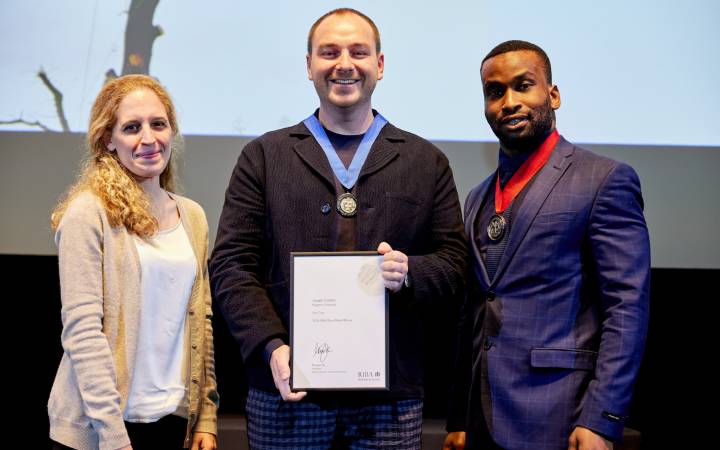Kingston School of Art sustainable design projects feature in London Design Biennale alongside work from world's most forward-thinking creatives
Posted Friday 4 June 2021
 The four research projects, focused on sustainability, are themed around the title of Designing for Time.
The four research projects, focused on sustainability, are themed around the title of Designing for Time.
A series of sustainable design research projects from Kingston School of Art, covering subjects ranging from architecture in India to reusable packaging for beauty products, will have pride of place at this year's London Design Biennale.
The exhibition, running at Somerset House in the heart of the capital from 1 to 27 June, brings together the world's most imaginative and forward-thinking designers, curators, and design institutes, providing a prestigious platform for collaboration and sharing ideas.
Four research projects undertaken by academic staff from Kingston School of Art will be among the exhibits on show. All have a strong focus on sustainability, with a common theme of designing for, and with, time as the world strives to tackle the growing impact of ecological change. They consist of an architectural project in India, an innovative problem-solving programme, research on garden design and work to improve sustainable packaging for a major brand.
Kingston School of Art's involvement in the London Biennale cemented its standing as one of the best design schools in the country and amplified the University's commitment to sustainability, Associate Dean of Research Professor Maria Chatzichristodoulou, who is one of the exhibition curators, said.
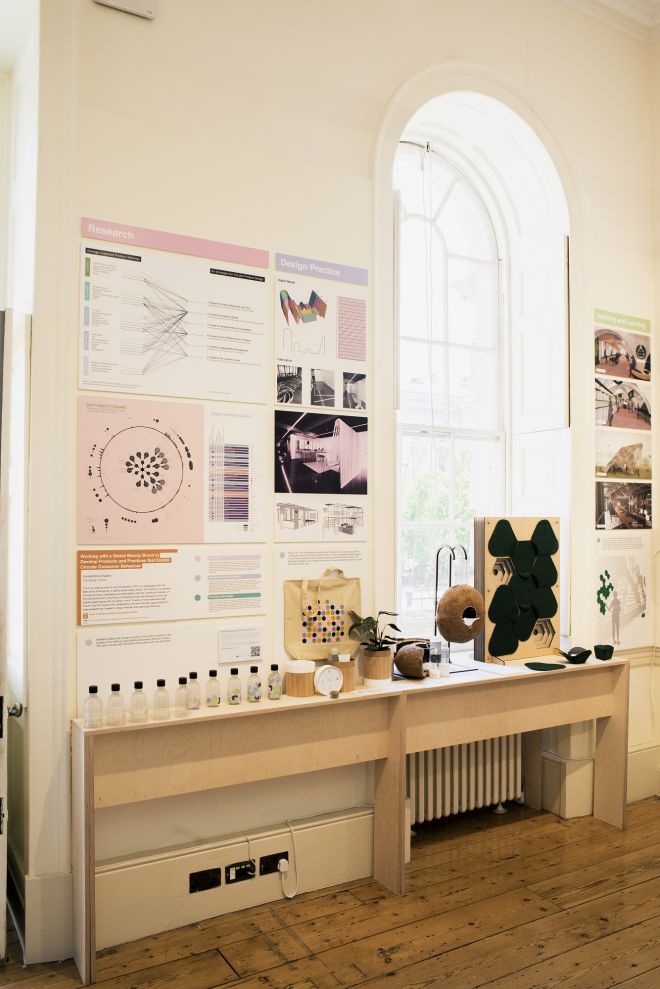 All of the projects have a strong focus on sustainability, with a common theme of designing for, and with, time as the world strives to tackle the growing impact of ecological change."The fact Kingston School of Art is one of only of a handful of universities participating in this major international event is testament to our academics' exceptional design expertise," she added. "Our exhibits highlight the University's strong commitment to sustainability, with every aspect of our activity assessed against targets from what and how we teach to the way our buildings are designed."
All of the projects have a strong focus on sustainability, with a common theme of designing for, and with, time as the world strives to tackle the growing impact of ecological change."The fact Kingston School of Art is one of only of a handful of universities participating in this major international event is testament to our academics' exceptional design expertise," she added. "Our exhibits highlight the University's strong commitment to sustainability, with every aspect of our activity assessed against targets from what and how we teach to the way our buildings are designed."
The research projects responded not only to the needs of a changing world but also related to the United Nations Sustainable Development Goals, senior lecturer and course director of the MA in Sustainable Design, Dr Paul Micklethwaite, said. "The Biennale is a fantastic opportunity to share ideas with other world-leading designers and showcase our innovations for a more sustainable future," he said.
One of the exhibits highlights an architectural research project in India, which was a collaboration between Kingston School of Art and CEPT University Ahmedabad. It is a detailed study of how people in the area adapted architecture to suit their everyday needs and the changing climate, Associate Professor in Architecture and Urbanism Dr Christoph Lueder, who worked in conjunction with colleagues Inigo Cornago and Dan Ryder Cook, said.
"We investigated the strategies and tactics that inhabitants use to transform their dwellings in negotiations amongst neighbours. An extension may create a new terrace for a neighbour living above but reduce daylight for someone else. Over a series of incremental transformations, the inhabitants learn at each step from lived experience to ensure a sustainable future for all," Dr Lueder said.
Another exhibit highlights the work of the award-winning Fixperts initiative through films displayed across three screens. The hands-on, creative problem-solving learning programme applies human centred design to create solutions to everyday problems was developed by Kingston University Professor of Design Daniel Charny and is now taught in universities and schools worldwide.
"I believe social sustainability sits at the heart of ideas of global resonance," Professor Charny said. "The Fixperts programme was conceived to encourage applied creativity and sustainability literacy. It has become part of a wider creative research exploring new formats and maybe even part of a cultural shift in how we create change. This can only happen if it's amplified by the ripple effect of world leading platforms such as the London Design Biennale."
The sustainability theme is also a key feature of another video exhibit called Whispers of the Garden. Produced by Dr Azadeh Fatehrad, it shows the rich history behind the gardens of the Bois de Moutiers estate in France, listed as a historical document and a ‘remarkable garden of France'. The project explores the intersections between Western and Eastern philosophy, landscape architecture, aesthetics and ecosystems.
 The team behind the exhibition at the London Design Biennale – (L-R) Professor Daniel Charny, Inigo Cornago, Azadeh Fatehrad, Dr Christoph Lueder, Dr Paul Micklethwaite and Konstantinos Chalaris.The team behind the exhibition at the London Design Biennale – (L-R) Professor Daniel Charny, Konstantinos Chalaris, Dr Azadeh Fatehrad, Dr Paul Micklethwaite, Dr Christoph Lueder and Inigo Cornago.
The team behind the exhibition at the London Design Biennale – (L-R) Professor Daniel Charny, Inigo Cornago, Azadeh Fatehrad, Dr Christoph Lueder, Dr Paul Micklethwaite and Konstantinos Chalaris.The team behind the exhibition at the London Design Biennale – (L-R) Professor Daniel Charny, Konstantinos Chalaris, Dr Azadeh Fatehrad, Dr Paul Micklethwaite, Dr Christoph Lueder and Inigo Cornago.A further display demonstrates a collaboration between senior lecturer in interior design Konstantinos Chalaris and Body Shop International to create sustainable and reusable packaging. The project highlighted the importance of working with big brands because they had the scale and influence to effect change for a more sustainable future, Mr Chalaris said. "By participating in such an important event as the London Design Biennale, I hope to encourage dialogue with visitors that will generate more innovative ideas and inspire people to think in a broader and more sustainable way," he added.
Taking part in the London Design Biennale was an excellent opportunity to meet academics and industry partners who might adopt some of the innovations developed at Kingston School of Art and work with the University to shape more sustainable practices, Professor Chatzichristodoulou said. "It's important for us to be in conversation with the most respected and innovative designers from across the world about future-facing practices, as well as playing our part in this community through the work we produce, our research, collaboration with industry and what and how we teach our students," she said.
• Book tickets for the exhibition and find out more about work being showcased by Kingston School of Art at the London Design Biennale.
• Find out more about studying design at Kingston School of Art.
Contact us
General enquiries:
Journalists only:
- Communications team
Tel: +44 (0)20 8417 3034
Email us



